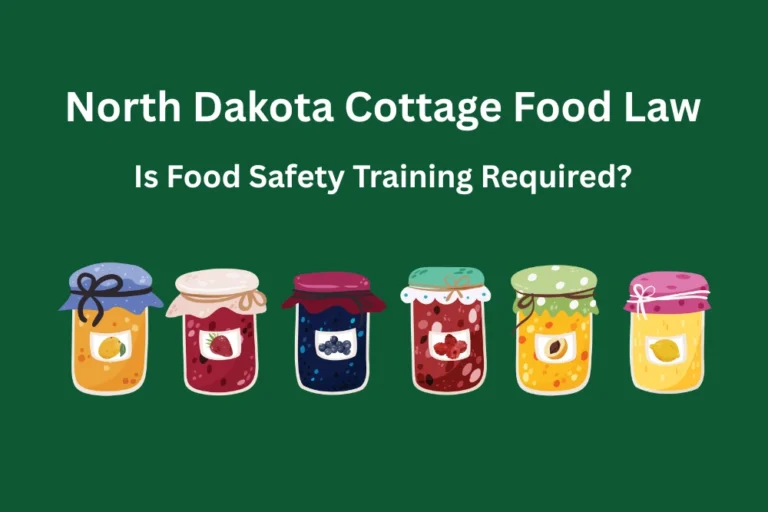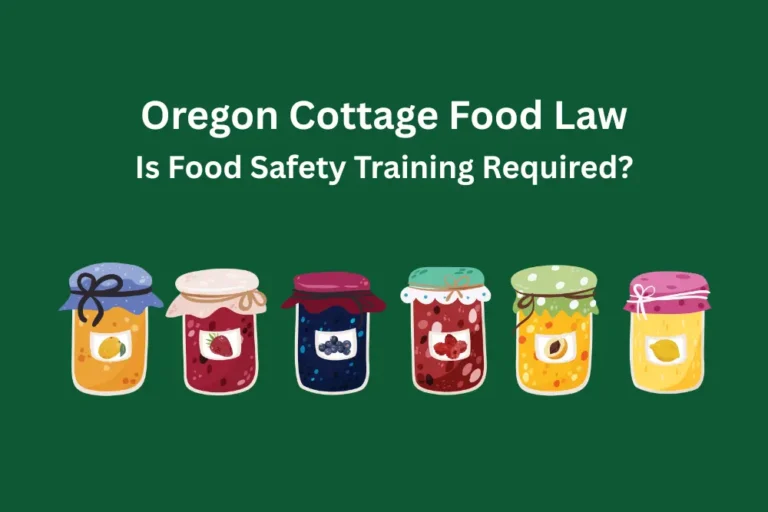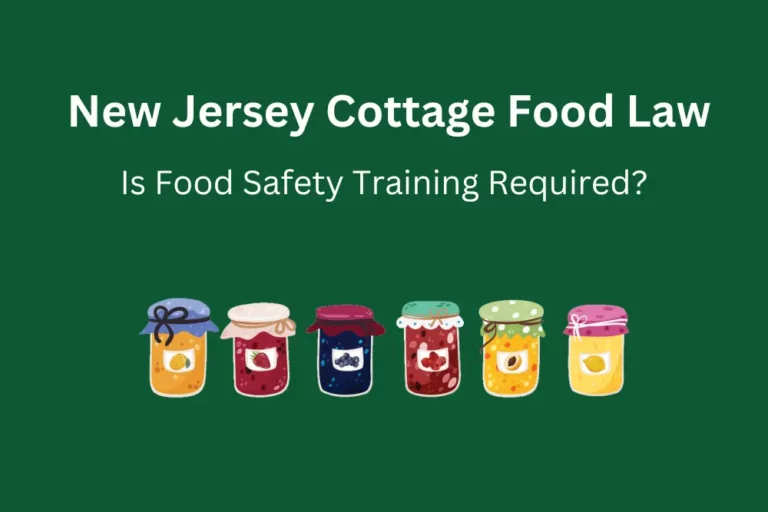Wisconsin Cottage Food Law: Do You Need Food Safety Training?
Article Summary
Selling homemade food in Wisconsin? The cottage food law doesn’t require food handler training, but getting your card can still give your business an edge. This quick video explains why it’s worth it, what you’re allowed to sell, and how to get your food handler card online with FoodSafePal.
Selling homemade food can be a great way to share your products and earn extra income, but every state has its own rules you need to follow.
Each state sets its own cottage food or “homemade food” laws that define what you can make, where and how you can sell it, and whether you need food safety training.
This article explains Wisconsin’s cottage food law and whether you need food safety training to sell homemade food.
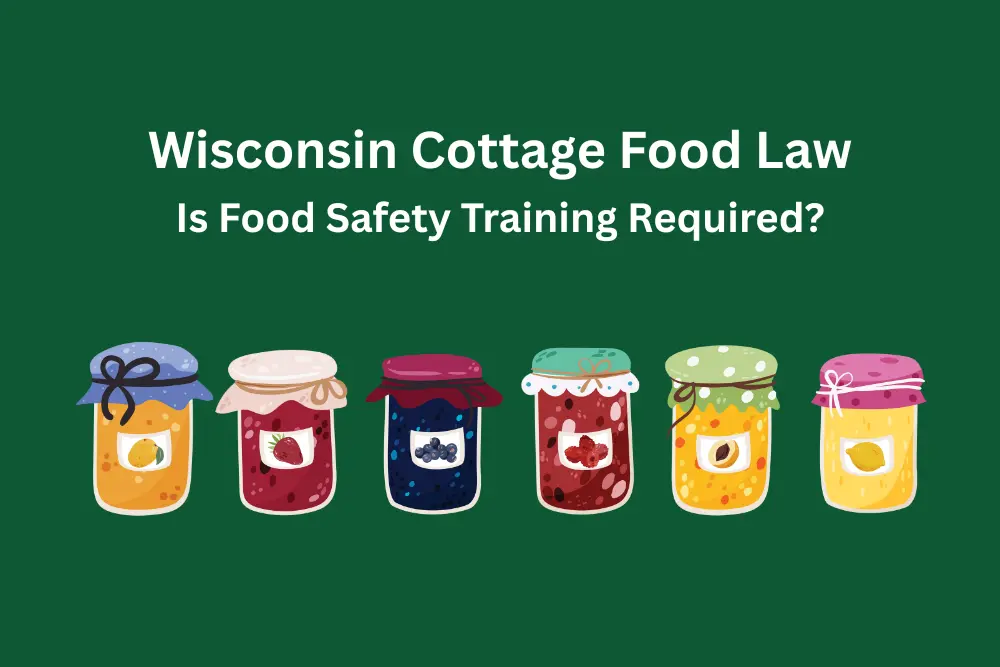
Wisconsin cottage food law
Wisconsin’s home-baked goods law allows residents to make and sell non-potentially hazardous baked goods from their home kitchen without a license. These are baked goods that can safely remain at room temperature and do not support the growth of harmful bacteria.
Wisconsin does not allow any homemade foods that require refrigeration or temperature control for safety.
Allowed non-potentially hazardous baked goods include items like cookies, muffins, brownies, breads, and other shelf-stable baked goods made with low-moisture ingredients.
Not allowed are any baked goods that require refrigeration, such as cream-filled items, custards, cheesecakes, meat pies, refrigerated frostings, unbaked doughs, dehydrated items, or anything sliced and served onsite.
Wisconsin gives sellers flexibility in where they can sell homemade baked goods. You may sell directly to consumers from places like your home, farmers markets, community events, and in-state mail orders.
However, Wisconsin does not allow home-baked goods to be sold wholesale to restaurants, retail stores, or other food establishments. You also cannot ship your products out of state or sell sliced, plated portions at events, as that is considered food service.
There is no sales cap on how much you can earn from selling homemade baked goods.
Summary
Wisconsin allows only non-potentially hazardous baked goods made in your home kitchen. You can sell directly to consumers at home, markets, events, and through in-state mail order, but you cannot sell wholesale, ship out-of-state, or offer plated or served portions. Anything requiring refrigeration is not allowed.
Do you need food safety training to sell homemade food in Wisconsin?
Wisconsin does not require food safety training or a Wisconsin food handler card to sell homemade baked goods, regardless of where you sell them.
Still, completing a food safety course is a smart way to protect your customers and strengthen your business. Some farmers markets, event organizers, and insurance providers may require proof of training.
If you decide to get trained, choose an ANSI–National Accreditation Board (ANAB)–accredited food handler course so your training meets recognized national standards.
FoodSafePal’s Food Handler course is ANAB accredited, fully online, and takes about 90 minutes to complete. Once you pass, you’ll get instant digital access to your food handler card and certificate, plus the option to order a printed version for display at markets or for your records.
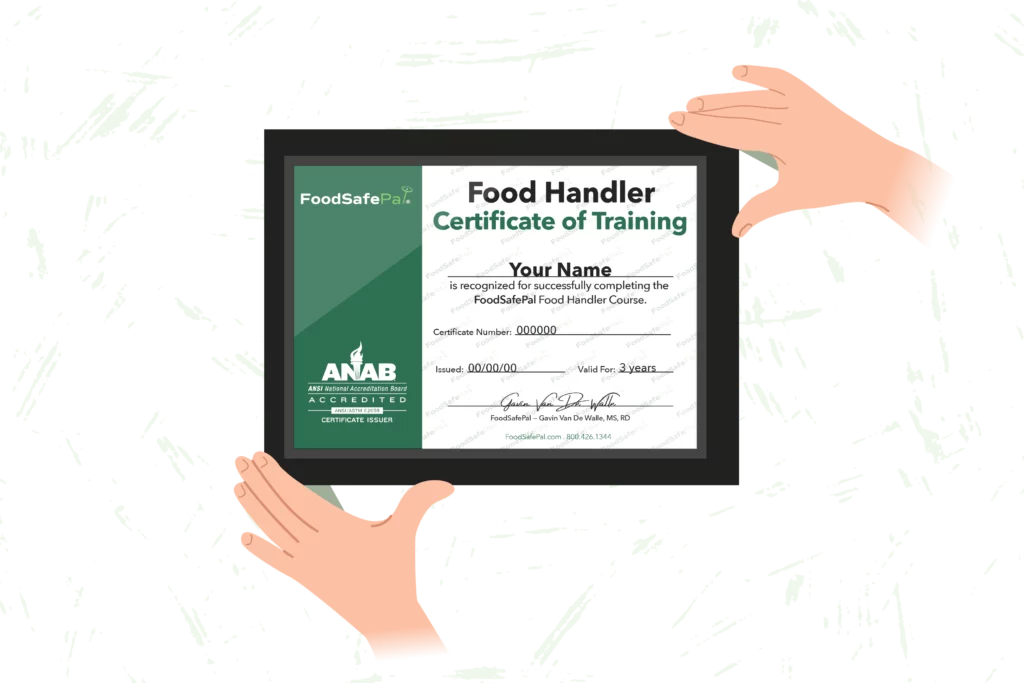
Get Your Wisconsin Food Handlers Card
Instant certificate. 100% online in about 90 minutes.
Summary
Wisconsin does not require food safety training to sell homemade baked goods, but completing an ANAB-accredited food handler course, like FoodSafePal’s, can help you meet market or insurance requirements and show customers you take their health seriously.
Labeling requirements
Wisconsin’s home-baked goods ruling does not require labels by law. However, labeling is strongly recommended because it helps customers understand what they’re buying and can prevent confusion at markets or events. Some markets may require labels as a condition of participating.
A recommended label includes:
- The product’s common name
- Your name or business name
- Your contact information
- A list of ingredients in descending order by weight
- Allergen information
- The date the item was made
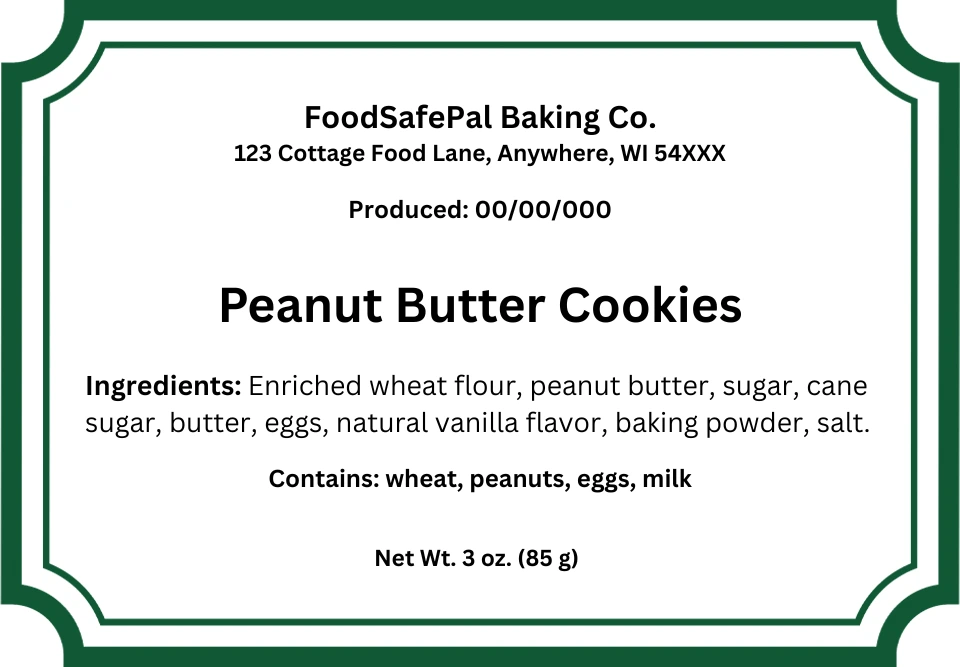
If you also make high-acid canned foods under the Pickle Bill, those products have their own legal labeling requirements and a $5,000 annual sales cap.
Summary
Most homemade baked goods do not require labels under Wisconsin law, but using one is best practice and may be required by market organizers. Pickle Bill products have separate legal labeling requirements.
The bottom line
Wisconsin’s home-baked goods ruling allows you to sell many non-potentially hazardous baked goods directly to people with no state licensing. Anything requiring refrigeration or temperature control is not allowed.
Food safety training is not required, but completing an ANAB-accredited food handler course from FoodSafePal can build credibility, meet venue or insurance requirements, and show customers you take their health seriously.
Labels are not legally required, but adding one helps customers feel confident in your products and may be required by markets or events.
Ready to start selling your homemade goods with confidence? Visit FoodSafePal.com to get your Wisconsin food handler card online in just 90 minutes.

Get Your Wisconsin Food Handlers Card
Instant certificate. 100% online in about 90 minutes.



